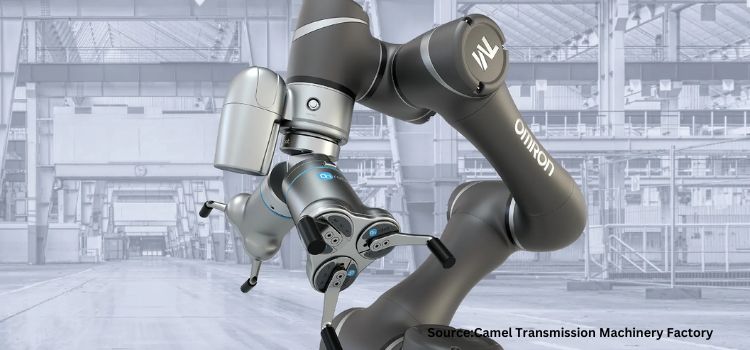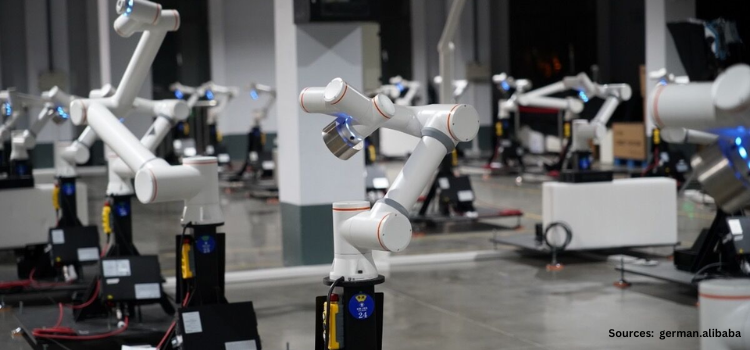
Japan Warehouse Robotics Market by Type (Automated Guided Vehicles (AGVs), Autonomous Mobile Robots (AMRs), Articulated Robots, & Others), by Offering (Hardware, Software, and Services), by Payload Capacity (Less than 100 KG, 101-200 KG, 201-500 KG, and Others), by Application (Palletizing and Depalletizing, Sorting and Packaging, Picking and Placing, Transportation), and by End-User (E-commerce, Automotive, Food & Beverages, and Others) – Opportunity Analysis and Industry Forecast, 2025–2030
Industry: Semiconductor & Electronics | Publish Date: 29-Mar-2025 | No of Pages: 149 | No. of Tables: 114 | No. of Figures: 59 | Format: PDF | Report Code : SE3153
Japan Warehouse Robotics Market Overview
The Japan Warehouse Robotics Market size was valued at USD 353.3 million in 2024, and is predicted to reach USD 939.3 million by 2030, at a CAGR of 16.7% from 2025 to 2030.In terms of volume, the market size was 16.79 thousand units in 2024 and is projected to reach 47.80 thousand units by 2030, with a CAGR of 17.9% from 2025 to 2030
Japan's fast expansion in automotive sector plays a vital role in driving the growth of the warehouse robotics market and since there is a declining workforce due to demographic impact so there is a need of Warehouse Robotics acting as a driver for market growth. However, the compact spaces for urban warehouses limits the widespread movement of warehouse robotics, reducing overall market growth.
Top Automation Industries Helps in Driving the Japan Warehouse Robotics Market Demand
Japan’s automotive industry plays a major role in driving the growth of the market. A much-needed focus on automation helping in supply chain efficiency, support just-in-time manufacturing, and reorganize parts distribution, the industry is slowly adopting complex robotic solutions.
According to a report from Our World in Data, new car sales in Japan reached approximately 3.89 million units in 2023, reflecting a 12% increase from 3.46 million units in 2022. As the industry tends to increase, the claim for intelligent and automated logistics solutions is expected to grow, reinforcing the significance of autonomous mobile robots (AMRs) in meeting effective demands.
Declining Workforce Drives the Japan Warehouse Robotics Market Growth
Japan's declining workforce, accelerated by decline in working population and lower birth rates, shows a massive challenge for industries reliant on manual workforce, particularly the logistics and warehousing industry.
As the availability of human workers continues to decrease, businesses are most likely to face difficulties in maintaining operational efficiency and meeting demands of the customer. A latest report from International Monetary Fund (IMF) states, Japan’s labour force is projected to decline significantly over the next two decades, with estimates indicating a drop from 66.3 million in 2010 to 56.8 million by 2030.
Thus, to address such challenges the adoption of warehouse picking robots is becoming essential, enabling businesses to maintain productivity, streamline operations, and sustain growth despite the decrease workforce.
Compact and Vertical Traditional Infrastructures in Urban Areas Hinders Market Growth
As the warehouses in Japan, particularly in urban areas, are often compact and vertically structured due to high land costs. Many outdated robotic solutions are built for big, open warehouse spaces, causing problems to implement automation in small environments without important modifications needed for it.
Therefore, the compact spaces for urban warehouses act as a key restraining factor for the growth of the warehouse robotics market in Japan, slowing down automation adoption and limiting the potential for widespread robotic integration.
Introduction of Artificial Intelligence Creates Future Option for the Market
The addition of artificial intelligence in robotic material handling is expected to play a major role allowing growth opportunity for the Japan warehouse robotics market trends in the future. AI induced solutions improves decision making, optimize inventory management and improve the accuracy and speed of operations that helps warehouses to become more accurate and adaptable.
As such in January 2025, Nvidia disclosed new AI development tools aimed at improving the potential of autonomous robots and vehicles. These models are mad to create synthetic data and simulate physical interactions, allowing developers to create designed templates for testing their AI systems before real-world. These progresses will focus on the transformative potential of AI in warehouse robotics, paving the way for smarter, more lively and highly efficient warehouse operations that meet the future demands of modern supply chains.
Competitive Landscape
The promising players operating in the Japan warehouse robotics industry includes ABB Ltd., Omron Corporation, KUKA AG, Fanuc Corporation, JBT Corporation, Teradyne Inc., Geekplus Technology Co. Ltd, GreyOrange, Zebra Technologies, Honeywell International Inc, Vanderlande Industries B.V., Daifuku Co., Ltd., Murata Machinery Ltd., YASKAWA ELECTRIC CORPORATION, Amazon Robotics LLC and others.
Japan Warehouse Robotics Market Key Segments
By Type
-
AGVs
-
AMRs
-
Articulated Robots
-
Others
By Offering
-
Hardware
-
Software
-
Services
By Payload capacity
-
Less than 100 kg
-
101-200 KG
-
201-500 KG
-
Others
By Application
-
Palletizing and Depalletizing
-
Sorting and Packaging
-
Picking and Placing
-
Transportation
By End User
-
E-commerce
-
Automotive
-
Food & Beverages
-
Others
Key Players
-
ABB Ltd.
-
Omron Corporation
-
KUKA AG
-
Fanuc Corporation
-
JBT Corporation
-
Teradyne Inc.
-
Geekplus Technology Co., Ltd.
-
GreyOrange
-
Zebra Technologies
-
Honeywell International Inc
-
Vanderlande Industries B.V.
-
Daifuku Co., Ltd.
-
Murata Machinery, Ltd.
-
YASKAWA ELECTRIC CORPORATION
-
Amazon Robotics LLC
REPORT SCOPE AND SEGMENTATION:
|
Parameters |
Details |
|
Market Size Value in 2024 |
USD 353.3 million |
|
Revenue Forecast in 2030 |
USD 939.3 million |
|
Value Growth Rate |
CAGR of 16.7% from 2025 to 2030 |
|
Market Volume in 2024 |
16.79 thousand units |
|
Unit Forecast in 2030 |
47.80 thousand units |
|
Volume Growth Rate |
CAGR of 17.9% from 2025 to 2030 |
|
Analysis Period |
2024–2030 |
|
Base Year Considered |
2024 |
|
Forecast Period |
2025–2030 |
|
Market Size Estimation |
Million (USD) |
|
Market Volume Estimation |
Thousand units |
|
Growth Factors |
|
|
Companies Profiled |
15 |
|
Countries Covered |
10 |
|
Customization Scope |
Free customization (equivalent up to 80 working hours of analysts) after purchase. Addition or alteration to country, regional, and segment scope. |
|
Pricing and Purchase Options |
Avail customized purchase options to meet your exact research needs. |

















 Speak to Our Analyst
Speak to Our Analyst





















